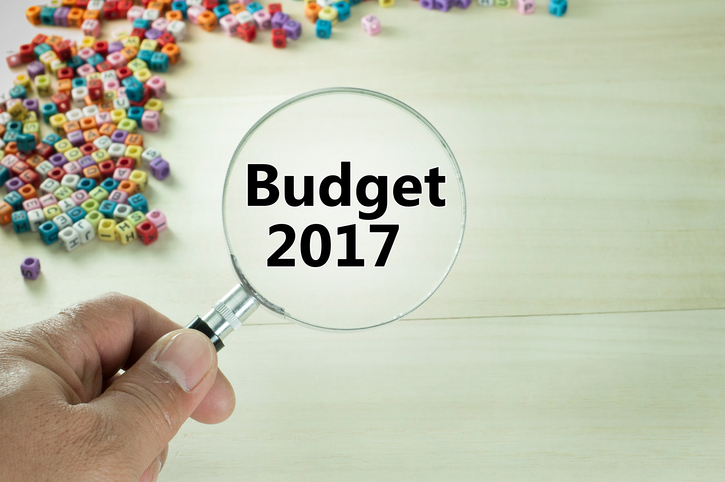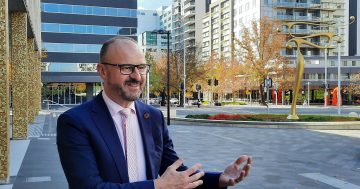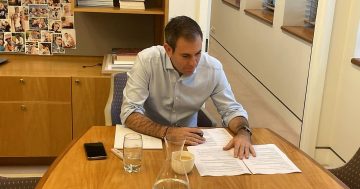
This year’s Federal Budget speculation frenzy is at an end with the delivery of the Budget on Tuesday night by the Federal Treasurer, Scott Morrison.
Lots of early attention has been given to the new taxes contained in the budget. There will be an increase to the Medicare Levy – to fund the full implementation of the NDIS. This has been well received given the strong support for NDIS and recognition of the need to ensure it is appropriately funded into the future. A big levy on the Australian banks looks like being well received by the community while being criticised by bank advocates who are warning that this money is likely to hit customers and shareholders.
This budget has been sold as a big infrastructure budget and a number of jurisdictions are receiving significant support for infrastructure projects. Early information suggests that the ACT is not one of these with the one project that appears to be supported is planning for the Pialligo avenue duplication. Except in the area of housing affordability, there continues to be little funding for core social infrastructure that is needed for people when they are managing challenging circumstances.
In the weeks leading up to the budget, the Government reduced expectations around housing affordability measures that were originally being touted as a centrepiece of the budget. There are a couple of good initiatives to encourage private investment in affordable housing and to secure funding for homelessness services which are very welcome, particularly for Canberra-based homelessness services that have been dealing with years of funding uncertainty. There are concerns that some other initiatives such as the ability of first home owners to save for a deposit through their superannuation and tax breaks for people downsizing may in fact put upward pressure on housing prices if they are successful. As expected, the Government failed to act in the areas that will make the most difference to housing affordable housing – negative gearing and capital gains tax.
Some of the big initiatives around education have already been well ventilated including the Government’s embracing of needs-based funding for schools. In addition, changes to university funding and requirements for graduates to pay back HECS loan much more rapidly were already foreshadowed. Increased investment in schools funding based on need is welcome, but the budget measures for universities are likely to disadvantage young people into the future.
The most distressing element of this budget is the continued vilification and targeting of people needing to access income support without any clear evidence regarding the positive impact of harsh measures for either individuals or the community. This budget makes savings through introducing harsh penalties for people who do not meet mutual obligation requirements – including being locked out of receiving any income support for a month in some circumstances. There is talk about drug testing for some groups and denying disability support for people who may have caused their disability through drug abuse. Beyond creating the classes of ‘deserving’ and undeserving’ poor, it is hard to see how this will save the community money or be effective in enabling people to deal with substance abuse. These measures reflect a broader emerging trend where particular groups face greater vulnerability and little support to deal with the challenges that sometimes occur in life.
The glaring omission in this budget is any investment around climate change and supporting us to move to a carbon neutral future. Response to this real challenge continues to be delayed and will ultimate mean that it will be more expensive to deal with in future years. Thank goodness that the ACT Government has recognised the need to act and we have action at a local level in this area.
This budget like the one before it is being judged against the benchmark of the horror 2014 Budget. Early analysis suggests that this is a much better budget in that it recognises the need to deal with revenue rather than cutting services, and supports major investments in the areas of education and disability. There is more to do however, particularly in supporting social infrastructure and essential services to our community.
What do you think are the good and bad elements of the 2017-18 Federal Budget for Canberra?
2017-18 Federal Budget coverage:
- Good news for small business but Canberra vetoed for infrastructure spend.
- How the public sector fares in the Budget.
Catchup on our LIVE coverage from Hotel Realm: Andrew Sykes from RSM Australia dissecting “The Rocky Horror Budget”. It was just a jump to the left for Malcolm Turnbull, but still a step to the right with continued attacks on public service pay growth and decentralisation. The impacts of the Budget for Canberra are in the detail – not the headlines.
Federal Budget 2017-18 – RSM overview.
Federal Budget 2017-18 – RSM pdf presentation.




















